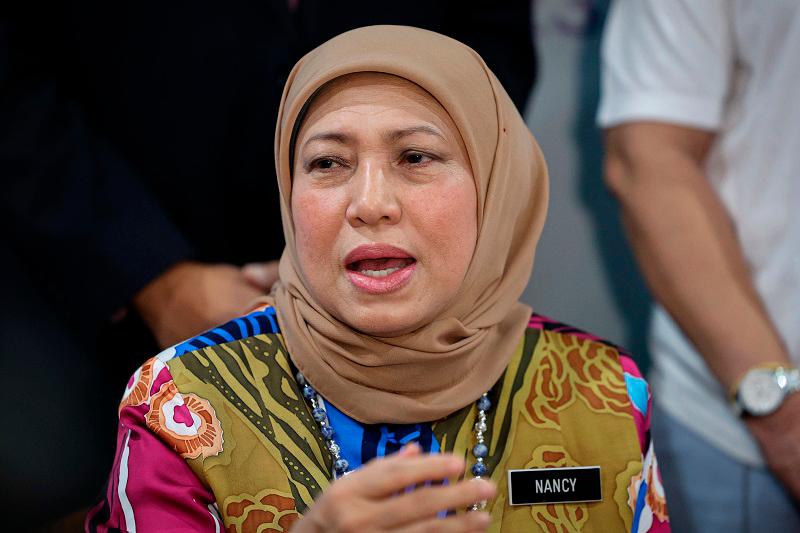PETALING JAYA: Women, Family, and Community Development Minister Datuk Seri Nancy Shukri told theSun that 1,842 sexual harassment cases have been reported in the country from January to October, with Selangor having the most, at 426 cases.
“Victims aged 18 to 30 made up the majority, accounting for 1,145 cases, while obscene humour emerged as the most common form of harassment, at 951 cases,” she said.
Speaking in response to the growing concern among the
public about such cases, Nancy acknowledged her ministry’s challenges, such as limited resources in rural areas, underreporting by victims due to stigma and fear of retaliation, and a lack of public awareness.
However, she also highlighted several initiatives implemented by her ministry to address sexual harassment at workplaces and
public spaces.
“The Tribunal for Anti-Sexual Harassment provides an alternative to civil courts, offering a swift, affordable and simplified process for resolving complaints, with a filing cost of just RM30.
“Advocacy programmes such as Toleransi Sifar Keganasan@Advokasi Antigangguan Seksual help raise awareness among key groups, including university students, employees, and the public.”
Additionally, the Advokasi Kasih Kanak-Kanak programme protects children by educating them, parents and guardians about their rights and measures to prevent harassment.
“The ministry also collaborates with stakeholders to promote
zero-tolerance policies at workplaces and provides support platforms like Talian Kasih 15999, which offer victims counselling and guidance on filing complaints.”
Rekindle Centre for Systemic Therapy, which began operations in 2010, provides treatment for expatriates and locals, including individuals, couples and families ranging from children to the elderly.
Its counsellor and sexologist, Andrea Koh, said sexual harassment has profound psychological impacts on victims, often leading to anxiety, depression, post-traumatic stress disorder, shame, guilt and anger.
“Such emotional burdens can result in isolation, loss of trust and a diminished sense of safety, with many sexual harassment victims remaining silent due to the power dynamics in which the perpetrators are often in positions of authority or close acquaintances.
“Psychological barriers such as self-blame, fear of judgment and uncertainty about reporting procedures further deter victims from speaking out,” she said.
Koh added that misconceptions like “silence means consent” or trivialising harassment as “just a joke” perpetuate the issue by undermining boundaries and personal autonomy.
Koh also said spending time with nature and connecting with trusted individuals or support groups can aid in recovery. Bystanders play a pivotal role in addressing sexual harassment as their actions can further perpetuate or disrupt the cycle of abuse.
A victim, who wanted to be known only as Aya, said on Oct 16, she was accompanied by a friend to the Wangsa Maju police station to report a case of sexual harassment and assault by a repeat perpetrator.
However, she claimed that the police initially refused to accept her report, dismissing it as an old case lacking evidence.
“A lance corporal (name withheld) was assigned to my case. On Oct 20, he contacted me at inappropriate hours, claiming it was to discuss
the case.
“During the calls, he made sexually inappropriate remarks, asked invasive questions about my body, and suggested explicit acts. He claimed this was standard procedure, which I knew was untrue.
“Despite my attempts to end the calls, he continued harassing me, repeatedly calling and making unrelated, inappropriate comments,” Aya said.
Frustrated and fearful, she withdrew her report, claiming the police failed to handle the case professionally.
“His behaviour was deeply traumatising, and I feel betrayed by the very policemen who are meant to protect victims. I’m afraid to return to the police station after experiencing victim-blaming and harassment.
“I hope no one else has to endure this mistreatment from those entrusted with (facilitating) justice,” she said.









